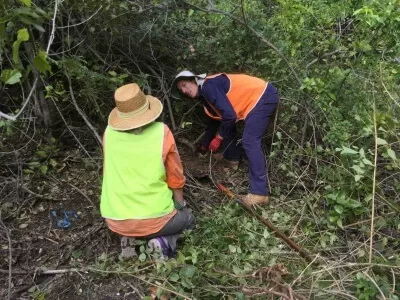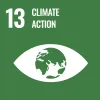Overview
Volunteering Solutions, in association with our partner organisation in New Zealand, brings volunteers together to plant and care for native trees, control pests and weeds, and protect threatened species. . If you share an innate love for the endangered species and for Mother Nature in general, then the Conservation Volunteering Program in New Zealand would be the perfect choice for you.
New Zealand is a picturesque country located in the southwestern Pacific Ocean consisting of 2 main islands, both marked by volcanoes and glaciers. However, in the last few decades, due to the considerable change in weather and an overall rise in the temperature - the natural beauty of the country has been hugely affected.
It’s through these programs that you’ll get the opportunity to see the real wild nature of New Zealand’s environment, and by helping out with track cutting, pest control, and animal monitoring, you’ll make a lasting contribution to conserving these places and the creatures that live there for years to come.
Whether it’s tree planting in the winter, tree releasing in the spring and summer, or preparing the ground for planting during the autumn, you’ll have lots of fun and always find something new to learn during your volunteering journey in New Zealand.
Volunteering Project in North Island, New Zealand
The North Island has plenty of rivers, volcanic regions, secluded yet spectacular beaches as well as dense rainforests and rural landscapes. Volunteers joining the project in North Island will have to start their journey from Auckland or Wellington, where you'll meet our local coordinators.
AUCKLAND - In Auckland, the projects are focused to bring biodiversity back to the city. From our large-scale native plantings at Ātiu Creek Regional Park and the Papakura Stream to trail maintenance, invasive weed removal and litter clean-ups, there are many ways to get involved to support the natural world.
WELLINGTON - At Wellington the projects are focussing on creating corridors for our native species. At Belmont Park the local team are replanting a forest with your help.There are a great range of projects to get involved in, including trail maintenance, invasive weed removal and coastal clean-ups.
Volunteering Project in South Island, New Zealand
In Christchurch, volunteers are restoring river corridors and wetlands to better protect the region’s waterways and its many native birds, lizards and bugs. You will work on our main site at the Ōtakaro Avon River Corridor, as well as smaller projects around the city. You will also help with our projects in beautiful Whakaraupō Lyttelton Harbour.
Volunteer Work Schedule
Volunteer Work Schedule
Projects normally run for 5 days per week, with one or two days free per week for relaxing or sightseeing. Project hours are from 8 AM – 4 PM daily, although this can vary on some projects when required by seasonal conditions or project activities.
Volunteers travel to a different project location every week or two. This means that in a 6-week Conservation Experience, you could visit at a range of locations and undertake several different conservation activities., depending on conservation needs and project availability at the time. We incorporate as much variety into our program as possible, while focussing on essential conservation as the main outcome.
All volunteers receive an orientation session lasting around one hour and this is provided when they arrive to join the program at 11 am on a Friday.
Following this, volunteers will either be moved to the local volunteer accommodation, or to regional placements by train, bus or vehicle (we make all travel arrangements for the volunteers). The first weekend is free time for the volunteers, though some travel may occasionally be required on Sunday if they are going to a very remote project location.
Volunteers will be advised when their Team Leader will pick them up for the first project – usually 8 AM on Monday morning (times may vary slightly by season).
Additional inductions take place on every project site, carried out by the Team Leader before the volunteers begin each activity. These cover:
The conservation aims of the specific project
How it will be carried out, including any instruction or training required for the volunteers
Essential safety information
Facilities on site / nearby
Volunteer Roles & Responsibilities
Volunteer Roles & Responsibilities
The types of activities volunteers will undertake depend on the season and the conservation needs of the area. Although volunteers aren’t able to choose the type of activity they do, we work hard to ensure volunteers experience a broad range of opportunities and locations.
In summer, your activities may include raising native seedlings, litter clean ups, removing weeds, maintaining tracks and trails and more. In winter you will mainly be planting and preparing planting sites.
Before volunteering on a project, your Team Leader will explain the project’s aims and help you complete the activity safely and effectively.
The type of project depends on the time of year, weather and what each local team is working on. Rest assured, you will make an impact on New Zealand’s biodiversity.
You should be reasonably fit and prepared to take part to the best of your ability. Your Team Leader will show you how to use all tools and equipment safely before you start each project, and they will always be there to help you. Always ask if you are not certain about instructions – we’re here to help!
Project Requirement
Project Requirement
Volunteers must be 18 years or older at the time of joining the project. You need to have an open mind and a flexible attitude for working in a new and different environment. The volunteer should bring energy and enthusiasm to make a difference and should be willing to work outdoors and get their hands dirty. Volunteers need a reasonable level of fitness to participate in this programme. You should be comfortable being active outdoors (e.g. planting trees, mulching and weeding) for five to six hours a day. Volunteers must be prepared to participate to the best of their ability. Any pre-existing injuries, allergies or medical conditions that may affect participation must be declared at the time of booking.
Schedule a Google Meet with a Program Advisor
Interested in our programs? We're here to provide expert guidance
- Get Detailed Info
- 20 min One -on-One meeting
- Get expert advise
- Application Guidance
Photo Gallery
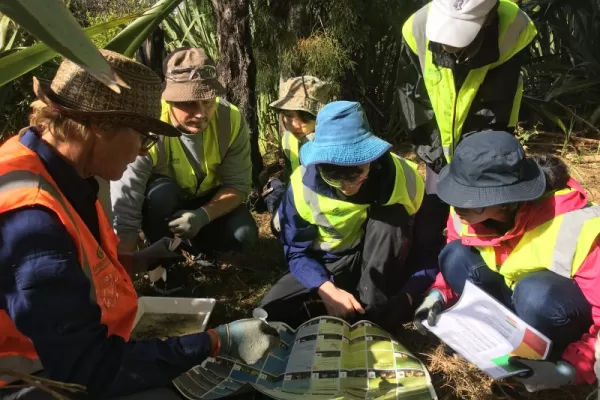
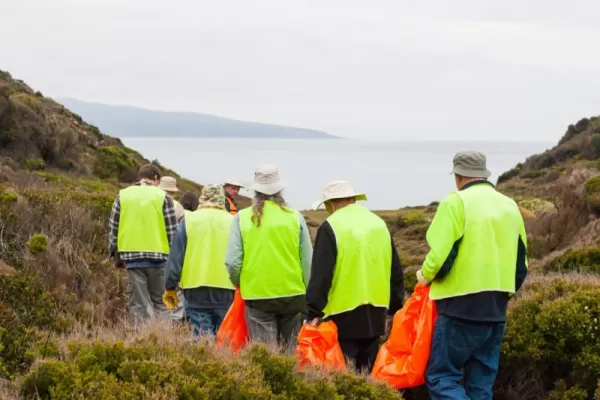
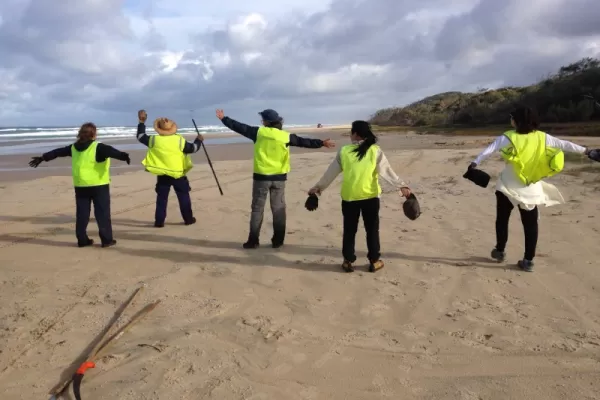
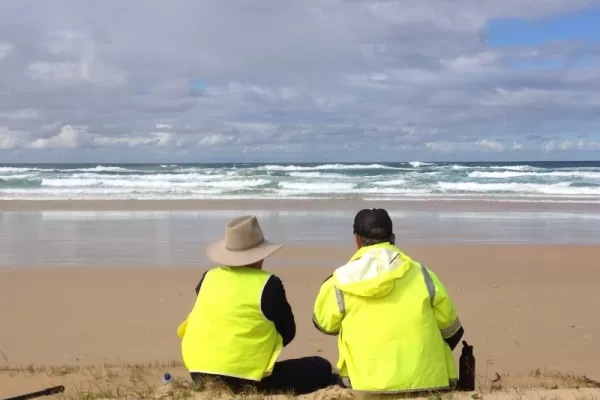
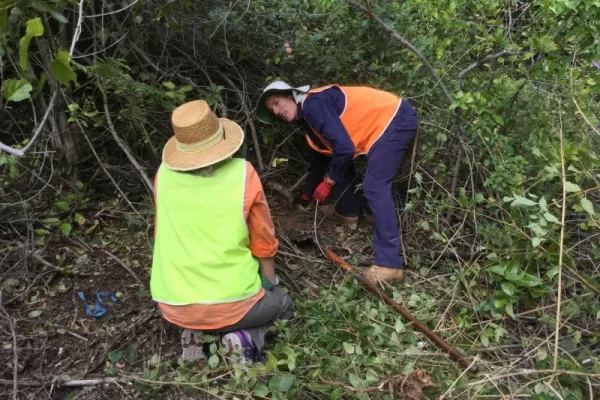
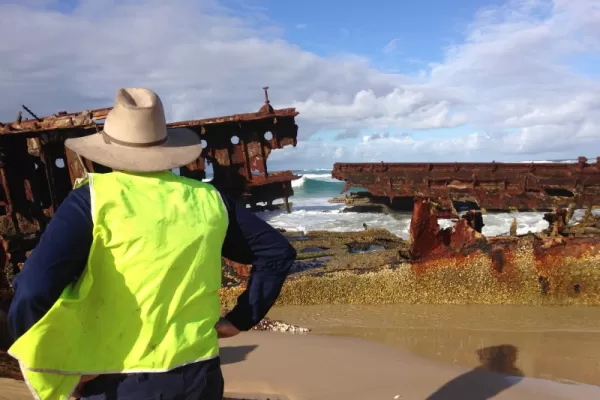
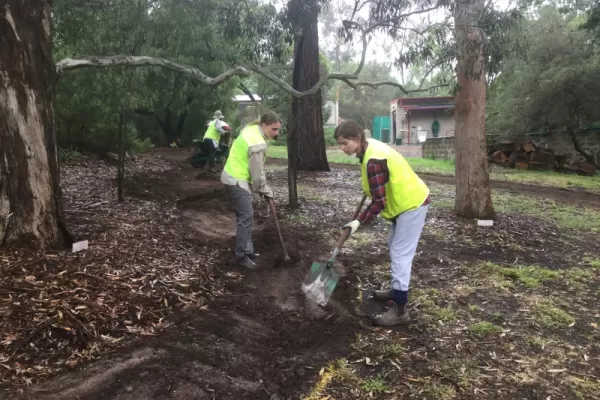
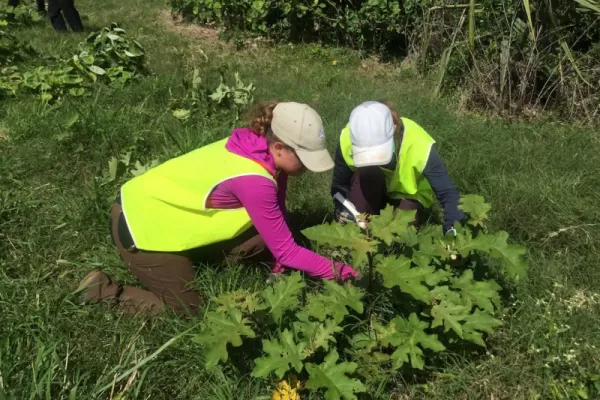
Living
Living
Arrival in New Zealand
All participants need to arrive at the meeting point address provided to them on the program start date i.e Friday at 11am. Full address and instructions shall be provided to the participants beforehand. Please note that airport pickup is not provided in the program and participants need to arrive directly at the provided address.
Orientation
As soon as you arrive at the location of your choice, you have to report to your assigned project site, where you would be met by your project coordinator. He/she would give you a detailed orientation. Areas like safety, locations, transportation, things to see etc will be covered in the Orientation. After your orientation is over, you will be taken to your accommodation and given the rest of the day to settle. Depending on the arrival date, you may have the weekend to explore the place and you are free to do so.
Accommodation
The type of accommodation provided to the volunteers varies according to the project location and would be either in a hostel or a volunteer house. All the accommodations would be clean and comfortable.All volunteers are required to bring a sleeping bag with them and be prepared to share bedrooms and bathrooms.
Meals
The meals provided reflect the local diet within New Zealand. For breakfast volunteers are generally supplied cereals, bread or toast, tea and coffee. Lunch is normally a self-made sandwich and fruit; in the evening volunteers enjoy a meal prepared by the group, typically something like pasta, roast or a vegetarian option. Volunteers help with the preparation of meals and cleaning up of dishes, plus some domestic duties as required. We rely on every volunteer to participate fully in the program, and the evening meal is a popular part of the day.We can cater for vegetarians but if volunteers have very specific dietary requirements (for example, food allergies), they may need to provide their own food. Please advise any special dietary requirements at the time of booking.
During your Free Time
You will have free time on the weekends and there are plenty of things to do and many places can be visited over the weekends. Participants can travel to main city locations on the weekends depending on the free time allocated by their project leader. For those participants in North Island, you can head out to Auckland to explore the city and those in the South Island can head out to Queenstown or Christchurch for the weekend.
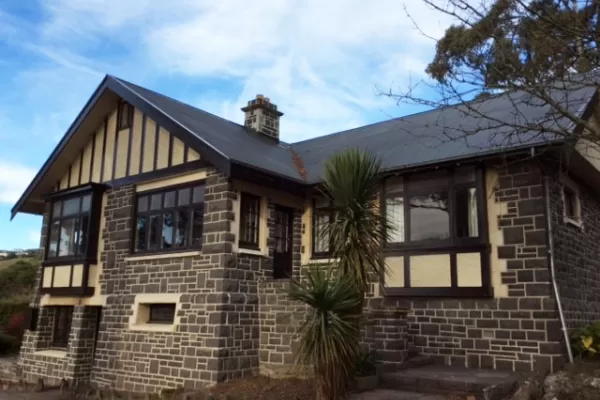
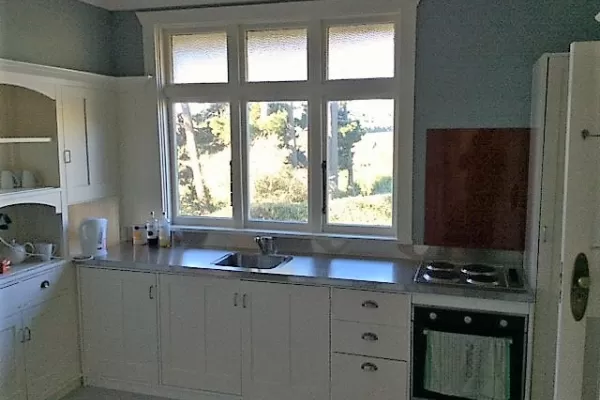
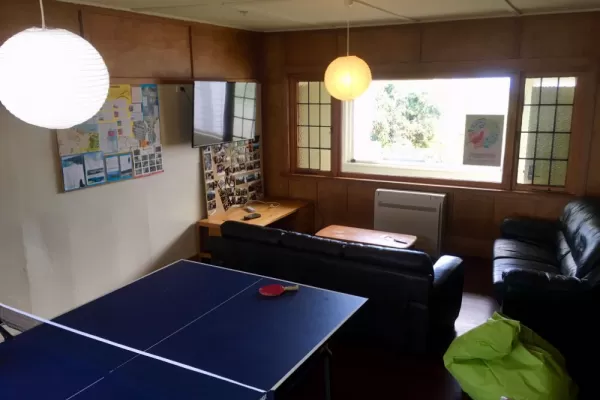
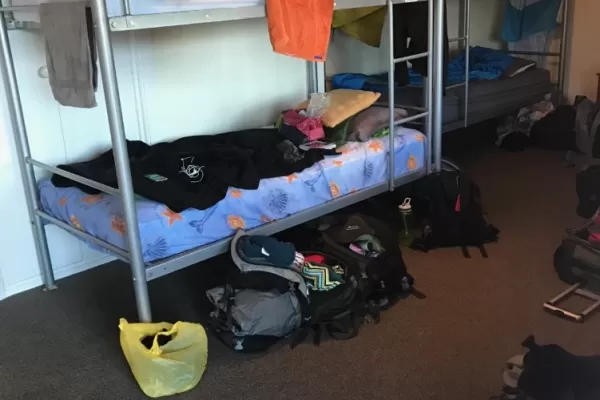
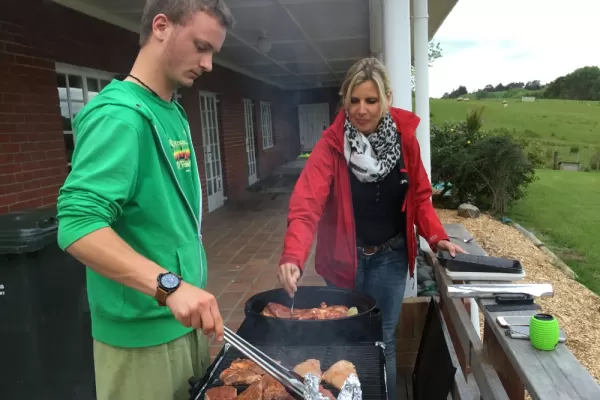
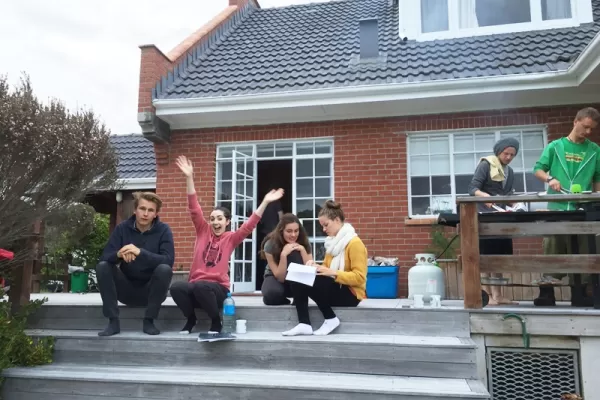
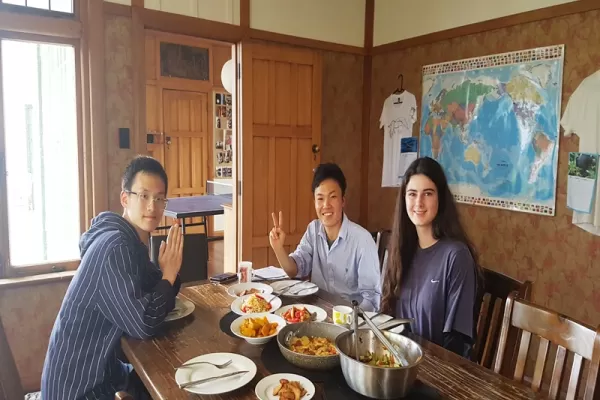
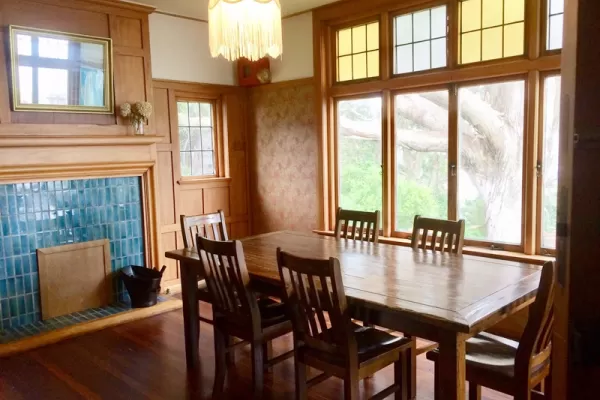
Dates
Dates
January
10
17
24
31
February
07
14
21
28
March
07
14
21
28
April
04
11
18
25
May
02
09
16
23
30
June
06
13
20
27
July
04
11
18
25
August
01
08
15
22
29
September
05
12
19
26
October
03
10
17
24
31
November
07
14
21
28
January
09
16
23
30
February
06
13
20
27
March
06
13
20
27
April
03
10
17
24
May
01
08
15
22
29
June
05
12
19
26
July
03
10
17
24
31
August
07
14
21
28
September
04
11
18
25
October
02
09
16
23
30
November
06
13
20
27
Available
Filling Fast
Booked Out
Costs
| Duration |
Program Fee
|
Choose your currency
|
|---|---|---|
| 1 Week | $582 | |
| 2 Weeks | $1014 | |
| 3 Weeks | $1495 | |
| 4 Weeks | $1950 | |
| 5 Weeks | $2395 | |
| 6 Weeks | $2845 | |
| Extra Week | $595 |
Please Note: An application fee of is charged over and above the program fee as an application payment. A 5% international banking fee is charged for credit card payments of program fee in USD/AUD.
What are you Paying For?
- All meals, including on weekends
- All accommodation, including on weekends
- Project-related travel
- Volunteers wildlife or plant guidebook
- Pre Departure Information
- Orientation and Induction on arrival
- Local Project Support
- Certificate of Participation (On Request)
What's NOT Included?
- Travel to starting point at office
- Visa and passport charges
- Flights Cost
- Departure, airport and airline charges
- Laundry, medical expenses, personal travel insurance and items of a personal nature
FAQ's
Application and Program Details
-
Why should I choose to volunteer?
-
The concept of volunteering differs from a normal ‘holiday’ in many ways. Volunteering is time willingly given in order to make a difference, without aiming for a financial gain. It’s all about doing something for the benefit of someone, or something, else – in this case, the environment! Although volunteering means giving time and effort to a cause, there are of course benefits for the individual volunteer as well. Some of the skills that volunteers can expect to gain while taking part in our programs include:
Teamwork: our projects all take place in teams, led by one of our friendly Team Leaders. Sometimes, you peers are local people, sometimes they are from other countries or a mixture of the two. There may be a lot of others (maximum of 10 volunteers per team) or just a couple of them.
Communication and People Skills: being part of a team of volunteers in a different country is a great way to build communication and people skills! It’s a really enjoyable aspect of our program, and even the shyest volunteer can build their confidence as part of a friendly group volunteering for a common aim.
Adaptability / Self-Management: volunteers set themselves a challenge just by deciding to volunteer in the first place. Following through and completing their commitment is a great outcome and something to be proud of. Adaptability is demonstrated by living in another country as an independent adult volunteer. -
Can I volunteer at more than one starting location?
-
Yes, of course, many volunteers choose to make bookings from two or more starting locations. If you choose this option, you’ll need to arrange and pay for your own travel between starting locations. You should either leave a week in between your bookings or arrange to re-join at your new starting location on Monday morning as we cannot accommodate volunteers arriving on weekends.
-
When will I know what activities I’ll be doing during my Conservation Experience?
-
As most of our programs are dependent on seasonal conditions as well as a conservation priority, we usually assign resources and volunteers around 2 weeks before each project starts. We’ll let you know what activities you’ll be doing at your induction on arrival.
-
What happens on weekends?
-
Unless you’re on a remote project, weekends are your free time to relax and enjoy some local sightseeing. Food and accommodation are provided. Ask our staff for suggestions if you need some sightseeing ideas!
-
What is the best time to apply for the volunteering project in New Zealand?
-
As we have limited spots available in our programs and we serve on first come first basis, it is strongly recommended to apply for the program and reserve your spot in the program well in advance. You can book your spot in the program by filling an online form and pay the application fee.
Once you complete your application, your individual 'My Account' will be active in which you will receive your placement confirmation after which you can pay the program fees. You can pay the program fees later as well in installments, but 45 days before the program starts. -
Can I volunteer with a friend?
-
We accept bookings from individuals – you can apply by yourself, or with one friend. For groups larger than two, we recommend you consider booking onto different teams, or choose a group booking if you all wish to be together on the same project. If you’re volunteering by yourself, don’t worry –most people join as individuals and you’ll make friends very quickly!
-
Can I choose which conservation activities I’d like to do?
-
No. Our program varies, depending on the time of year, weather and conservation priorities. We’ll put together a program of conservation activities for you.
-
What time will I leave the program?
-
Our programs finish on Fridays. Activities are normally completed by 4 pm, however, you may then need to travel back with the rest of your team to our office or catch a train back to the city (we’ll organize travel for you). Our Team Leaders will usually offer to drop you off near the town center, station or bus stop if it’s convenient, or you can call a taxi to pick you up from the office.
-
How Long Does It Take to Process My Application? Will My Application Be Accepted?
-
After you complete your application, your personalized ‘My Account’ will be active. You will need to upload your CV/Resume along with your photo in the same. Our backend team and the placement site takes around 10-12 days to review your application. After we review your CV and documents, your booking is confirmed and booking confirmation is updated in your ‘My Account’. Some projects need a mandatory criminal background check and the same is mentioned in the project info of your program. Approval of your application depends on your qualification and eligibility criteria for each project.
-
Do I need any special skills to volunteer?
-
No – just be prepared to join in the best of your ability! There will always be a Team Leader with you, who is there to explain the project to you (including the conservation reasons), show exactly you what to do and how to do it safely. You’ll learn plenty of new skills on this program.
-
Will I do the same activities every day?
-
It will depend on circumstances and the need, of course. On some weeks, you make complete a major project, such as being part of a team planting a thousand trees or building a walking track. On other weeks, you may do a variety of activities every day. Each week or two, your projects will change to a new location. We include as much variety in the program as possible while maintaining the focus on conservation priorities because this is what you have volunteered to help with.
-
Can I get a discount to be a part of this program?
-
Incase you are a returning volunteer, you’ll get a $50 discount on the application fee. Also, in case you are coming in a group of 5 or more, you ask for a discount and we’ll surely look into it.
-
How long can I volunteer for, in New Zealand?
-
As long as you wish! We would say, the more the better! Most of the volunteers join our program for at least four weeks, but many stay much longer. Remember that you can book a number of starting locations and arrange your own travel to fit volunteering in with your travel plans around New Zealand. Our programs run in weekly blocks, starting on Fridays at 11 am and finishing on Fridays after 4 pm.
Note: If you are staying more than one week, weekend meals and accommodation are of course included. -
Is there an induction or orientation? What happens when I start the program?
-
Yes. The Orientation Session takes place on Friday when you start your program. We’ll explain everything you need to know, including essential safety information, and introduce you to our staff and fellow volunteers. After that, you’ll have some free time to relax and get to know the other volunteers, before starting your first project on Monday.
-
How much time will I spend on conservation projects? How much free time will I have?
-
Our programs usually run from Monday to Friday, with weekends free. This may change from time to time on remote projects, where volunteers spend 10 days in a remote location, followed by a longer break, or when travel to a project site is required on weekends. Project hours are normally from 8 am – 4 pm.
-
Can I get any sort of acknowledgement after I complete my work?
-
Yes, Volunteering Solutions will provide you a Certificate of Completion, once you finish your work.
Flights and Visa
-
Will I be picked up from the airport when I arrive?
-
No, you will need to make your own way to the meeting point/office which is your starting point. All the meeting points/offices are in reasonably central locations, and we will provide directions to help you get there. You need to plan to arrive at the office by 11 am on Friday morning, and be ready to start your program.
-
Can I know more about how to get a Visa for New Zealand?
-
If you are a citizen of the UK or any country which has a visa waiver agreement with New Zealand, you can stay in the country for 3 months without a Visa. However, getting a Visa isn't much of a difficult task. You can simply fill the Online Application form and opt for the Visa. For more information regarding the Visa, you can https://www.newzealand.com/int/visas-and-immigration/"; target="_blank">check here or get in touch with our Program Advisor.
Health and Safety
-
What if I have a pre-existing medical condition or an injury?
-
You need to declare any pre-existing medical conditions, allergies or injuries when you make your booking. The information you provide is kept in confidence, but it will help us to manage your condition safely. It’s always best to tell us so that we can look after you properly.
In some cases, we may ask you to obtain some further information from your doctor before we can accept your booking.
If we feel that we are not able to accept your booking because we do not think it will be safe for you to take part, we reserve the right to refuse the booking. In this case, we will, of course, give a full refund of any money paid so that you can find an alternative program to join. -
Is the program suitable for children?
-
Our program is suitable for adult volunteers aged 18 – 70.
-
How fit do I need to be?
-
This is an active program, and you should be reasonably fit. If at any time you have a concern about your fitness for any activities, please speak to your Team Leader.
Accommodation and Living
-
Is internet access available?
-
You will usually be able to find an internet café or library with internet access on weekends. Internet access is not provided at volunteer accommodation – even if you have your own laptop, wireless broadband is not often readily available outside major cities.
-
What kind of meals will be provided to me?
-
We provide wholesome food based on a typical local diet for the volunteers in New Zealand. Meals are a group activity with all volunteers helping with cooking and cleaning. Meal examples include cereals, toast, tea and coffee for breakfast; sandwiches and fruit for lunch; and meals like pasta, BBQ, curries or stir-fries for dinner.
-
How much luggage can I bring?
-
It's always better to travel light. As space is limited, we ask that volunteers keep their luggage to a maximum of 15kgs in a backpack or soft-sided bag. We suggest that volunteers bring a small daypack to carry lunch, sunscreen, water bottle etc.
-
How much money should I carry?
-
Every volunteer is different and therefore spending money requirements vary. Some volunteers spend more on going out on weekends, doing touristic activities and buying souvenirs etc., so consider your own spending habits and budgeting abilities when it comes to deciding how much money to bring. The amount of spending money you bring is entirely up to you – it varies from volunteer to volunteer. While you are in the program, you only need enough spending money for social activities and sightseeing on weekends.
All food, accommodation, and travel costs are included while you are volunteering and on weekends in between volunteer projects. You will need to budget some money for laundry costs (laundromats are commonly available with coin-operated washers and dryers). -
Can I bring a laptop or tablet with me?
-
This is absolutely a personal choice. You should be aware that we cannot provide insurance or guarantee safe storage for items like laptops – you will need to take full responsibility for looking after it.
-
Will I share a bedroom or bathroom with other people?
-
Yes, all accommodation and bathrooms on this program are shared.
Depending on the project location and style of accommodation, rooms may be shared or there may be separate rooms for male and female volunteers. -
What mobile phone coverage can I expect?
-
Mobile coverage can be limited outside major cities.


























